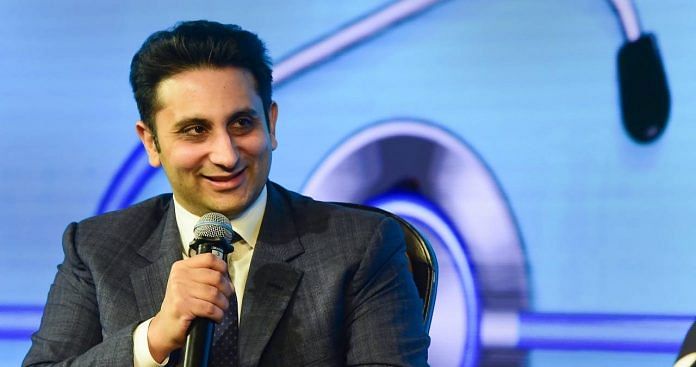New Delhi: Adar Poonawalla, chief executive officer of Indian biotechnology and biopharmaceuticals company Serum Institute of India, said Tuesday that his company was criticised internationally because “it did not suit the global narrative to have a company from India be capable of delivering quality products”.
The 41-year-old Poonawalla was speaking at the All India Management Association’s 7th National Leadership Conclave in Delhi.
“I got a lot of criticism for my decisions in 2021. The Indian media was fair to me but international media wanted to criticise because it did not suit them to have an Indian company have the quality and capability of contributing globally in such an important matter,” Poonawalla said.
“It got politicised and I had to deal with that. I’d be very happy to now slowly phase out of the limelight,” he said.
As the world’s largest vaccine manufacturer, SII became among the first global maker of Covid-19 vaccines after partnering with AstraZeneca, which was developing the vaccine — marketed in India as Covishield — in partnership with the University of Oxford.
“I wanted to make sure ours was among the first vaccines to make it out of the gate because, as more and more players came into the market, the demand would taper off,” Poonawalla explained.
He said that he bet on the AstraZeneca vaccine because it used a proven platform, an adenovirus vector-based vaccine, as compared to two of the other two early vaccines by Pfizer and Moderna, both based on mRNA technology, a completely new platform.
Also Read: From previous shortages, world moves to possible excess of Covid-19 vaccines
The hurdles
Decades of experience in vaccine-making, however, did not insulate Poonawalla and SII from hurdles during the pandemic.
“Even though the Indian government did help us get raw materials from the US through diplomatic channels, that should not have been necessary. It should have been automatic,” he said.
Poonawalla claimed that there are a lot of political forces in other countries — like the US and some countries in Asia — that want to keep Indian companies out because it brings competition into their territories. But at least at the time of a pandemic, having a treaty on the free flow of raw materials and regulatory harmonisation could be a way of addressing it, he said.
He said that although India was better equipped at dealing with pandemics now, it is more important for a global treaty to regularise standards that allow companies to be able to share resources across borders.
“A lot of the African countries could not get access to the vaccines. Having a global pandemic treaty would make it much easier for politicians to convince their own nations that it (vaccine sharing) was the right thing to do,” he said.
“When we were trying to export vaccines in the first quarter of 2021, the Indian opposition parties and others thought that all the vaccines should remain in India. But what we failed to communicate to them was that we get a lot of reciprocity because India is the pharmacy of the world,” he explained. For example, when India needed oxygen, other countries sent help, Poonawalla said.
Protests from the Indian opposition at the time when the Delta variant-fuelled second Covid wave was devastating the country, forced the central government to stop vaccine exports for a few months.
As a result, Indian companies could not meet their commitments to other countries at a critical time, damaging India’s reputation, he said. In May 2021, the Indian government had to turn down the request from SII to export 50 lakh doses of Covishield to the UK under its prior commitments, despite the international pressure and several rounds of negotiations by SII.
Also Read: Immune to Covid? It’s possible — but a medical mystery
The lessons
Poonawalla said there was an urgent need for a global treaty to deal with pandemics that would remove the political and bureaucratic barriers to resource-sharing at critical times.
“I am working on a global pandemic treaty that I proposed in Davos (World Economic Forum summit) this year,” Poonawalla said. “We have to have, in a pandemic situation, global harmonisation of regulatory standards. We need to have mutual recognition of vaccine certifications. We need to have a free flow of raw materials and vaccines in a crisis,” he said.
So how will the treaty help? It will assist in fulfilling commitments at a time of a massive health crisis like Covid “so there would be no ambiguity about what we need to do and what we should”.
“This would not only benefit companies in the future who make commitments but also ensure that poorer nations have access,” he said.
The world is already falling back into its pre-pandemic ways, Poonawalla said.
“Currently there are different regulations in different countries to fight the same global pandemic — once again highlighting the need to have harmonised regulations,” he added.
(Edited By Uttara Ramaswamy)
Also Read: Celebrities can’t use ‘my body, my choice’ to oppose Covid vaccine. They aren’t special



